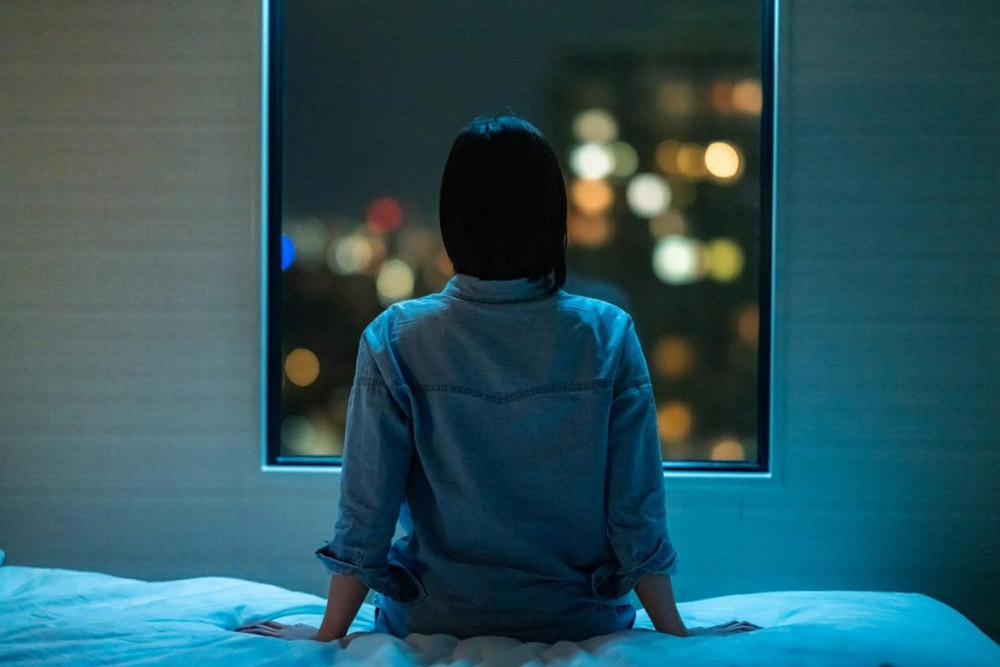
你是那种听到“早起的鸟儿有虫吃”这类俗语就心生抵触(甚至会打哈欠)的夜猫子吗?若是如此,马修·沃克(Matt Walker)对你的处境感同身受。
上周在纽约举行的Equinox全球睡眠研讨会上,著名睡眠研究专家沃克对听众说:“我们斥责夜猫子懒惰或懈怠,但这并非他们的过错。”
这是因为你何时需要入眠取决于所谓的“睡眠类型”——即身体对一天中特定时段的本能偏好。他解释说,这在很大程度上是由基因决定的。
加州大学伯克利分校神经科学和心理学教授、人类睡眠科学中心创始人兼主任沃克说:“个体睡眠类型存在显著差异,关键在于遵循自身睡眠类型规律作息。”
他在研讨会上表示:“当下社会普遍偏爱早起型人群,源于人们秉持‘A型人格者理应获得嘉奖’的观念。”遗憾的是,他也坦言:“我们对夜猫子群体存有偏见。”
鉴于社会普遍存在沃克所说的“竞争性睡眠不足”现象,即吹嘘自己黎明即起或仅需四小时睡眠,上述情况尤为明显。他指出,这类行为背后隐含的观念是“我事务繁忙、举足轻重,这就是我睡眠很少的原因”。虽然确实存在所谓的“天生短睡眠者”,但这种人极为罕见——比被闪电击中的概率还低。通常而言,人们每晚需要保证七到九小时的休息时间。
还有一种误解是,当夜猫子熬夜后又早起,其他人便认定他们所需睡眠时间较少。但实际上,他解释说:“他们只是被迫在错误时段入眠。”
以下为您介绍关于睡眠类型所需了解的一切,以及如何抛开外界干扰,保障自身获得充足睡眠。
什么是睡眠类型?
沃克解释说:“睡眠类型指的是个人偏好的睡眠和活动时段。”他指出,睡眠类型约40%到50%受基因影响,且会随年龄增长自然改变——青少年时期倾向于晚睡,而成年时期则倾向于早起。睡眠类型与昼夜节律(即人体24小时生物钟)不能混为一谈:昼夜节律在个体间差异较小,而睡眠类型则是在这一框架内形成的个性化特征。
睡眠类型可以改变吗?
虽然永久性改变个体睡眠类型可能颇具挑战性,但研究表明适度调整是可行的——包括一项研究显示,通过规律的作息安排和光照调节,夜猫子的睡眠-觉醒模式能够提前两小时。但沃克认为,要维持这种改变需要持续且严苛的干预,这使得长期改变“根本无法实现”。 “应让夜猫子顺应自身生理规律入眠。至少,基于科学和医学数据,我是这样认为的。”
违背自身睡眠类型睡眠会有什么后果?
沃克解释说,违背自身睡眠类型作息会引发问题,不仅会导致疲惫不堪,还可能诱发疾病。
大量研究表明,相较于早起人群,夜猫子罹患糖尿病的风险高出30%,出现心理疾病(如抑郁症)的几率近乎前者的两倍,全因死亡率高出10%,患心脏病的风险也会增加。为了适应与自身睡眠类型错位的作息安排,他们每天摄入的咖啡因也明显更多。
沃克对《财富》杂志表示:“至少在我看来,所有这些证据都表明,当我们违背自身睡眠类型作息时,随之而来的睡眠紊乱将带来严重后果。”
给被迫违背自身生物钟类型睡眠者的建议
针对需早起上班的夜猫子和需上夜班的早起者,沃克给出如下建议:
• 尽可能保持每天睡眠-觉醒时间一致,偏差控制在正负25分钟以内。
• 借助晨间强光照射,调节生物钟,使其提前。
• 考虑在傍晚时分服用低剂量褪黑素,以帮助更早入睡。
• 优化睡眠环境,并谨慎控制咖啡因摄入。
沃克建议:“倘若你能适度调整作息,使其更贴合自身天然的睡眠类型,那么因睡眠类型引发的风险通常会有所降低。我明白这并非易事,但即便每天仅调整15到20分钟,也是良好的开端。日积月累,效果就如同优质投资带来的复利一样!” (财富中文网)
译者:中慧言-王芳
你是那种听到“早起的鸟儿有虫吃”这类俗语就心生抵触(甚至会打哈欠)的夜猫子吗?若是如此,马修·沃克(Matt Walker)对你的处境感同身受。
上周在纽约举行的Equinox全球睡眠研讨会上,著名睡眠研究专家沃克对听众说:“我们斥责夜猫子懒惰或懈怠,但这并非他们的过错。”
这是因为你何时需要入眠取决于所谓的“睡眠类型”——即身体对一天中特定时段的本能偏好。他解释说,这在很大程度上是由基因决定的。
加州大学伯克利分校神经科学和心理学教授、人类睡眠科学中心创始人兼主任沃克说:“个体睡眠类型存在显著差异,关键在于遵循自身睡眠类型规律作息。”
他在研讨会上表示:“当下社会普遍偏爱早起型人群,源于人们秉持‘A型人格者理应获得嘉奖’的观念。”遗憾的是,他也坦言:“我们对夜猫子群体存有偏见。”
鉴于社会普遍存在沃克所说的“竞争性睡眠不足”现象,即吹嘘自己黎明即起或仅需四小时睡眠,上述情况尤为明显。他指出,这类行为背后隐含的观念是“我事务繁忙、举足轻重,这就是我睡眠很少的原因”。虽然确实存在所谓的“天生短睡眠者”,但这种人极为罕见——比被闪电击中的概率还低。通常而言,人们每晚需要保证七到九小时的休息时间。
还有一种误解是,当夜猫子熬夜后又早起,其他人便认定他们所需睡眠时间较少。但实际上,他解释说:“他们只是被迫在错误时段入眠。”
以下为您介绍关于睡眠类型所需了解的一切,以及如何抛开外界干扰,保障自身获得充足睡眠。
什么是睡眠类型?
沃克解释说:“睡眠类型指的是个人偏好的睡眠和活动时段。”他指出,睡眠类型约40%到50%受基因影响,且会随年龄增长自然改变——青少年时期倾向于晚睡,而成年时期则倾向于早起。睡眠类型与昼夜节律(即人体24小时生物钟)不能混为一谈:昼夜节律在个体间差异较小,而睡眠类型则是在这一框架内形成的个性化特征。
睡眠类型可以改变吗?
虽然永久性改变个体睡眠类型可能颇具挑战性,但研究表明适度调整是可行的——包括一项研究显示,通过规律的作息安排和光照调节,夜猫子的睡眠-觉醒模式能够提前两小时。但沃克认为,要维持这种改变需要持续且严苛的干预,这使得长期改变“根本无法实现”。 “应让夜猫子顺应自身生理规律入眠。至少,基于科学和医学数据,我是这样认为的。”
违背自身睡眠类型睡眠会有什么后果?
沃克解释说,违背自身睡眠类型作息会引发问题,不仅会导致疲惫不堪,还可能诱发疾病。
大量研究表明,相较于早起人群,夜猫子罹患糖尿病的风险高出30%,出现心理疾病(如抑郁症)的几率近乎前者的两倍,全因死亡率高出10%,患心脏病的风险也会增加。为了适应与自身睡眠类型错位的作息安排,他们每天摄入的咖啡因也明显更多。
沃克对《财富》杂志表示:“至少在我看来,所有这些证据都表明,当我们违背自身睡眠类型作息时,随之而来的睡眠紊乱将带来严重后果。”
给被迫违背自身生物钟类型睡眠者的建议
针对需早起上班的夜猫子和需上夜班的早起者,沃克给出如下建议:
• 尽可能保持每天睡眠-觉醒时间一致,偏差控制在正负25分钟以内。
• 借助晨间强光照射,调节生物钟,使其提前。
• 考虑在傍晚时分服用低剂量褪黑素,以帮助更早入睡。
• 优化睡眠环境,并谨慎控制咖啡因摄入。
沃克建议:“倘若你能适度调整作息,使其更贴合自身天然的睡眠类型,那么因睡眠类型引发的风险通常会有所降低。我明白这并非易事,但即便每天仅调整15到20分钟,也是良好的开端。日积月累,效果就如同优质投资带来的复利一样!” (财富中文网)
译者:中慧言-王芳
Are you a night owl who cringes—maybe even yawns—at phrases like “the early bird catches the worm”? If so, Matt Walker gets you.
“We lambast evening types as being slothful or lazy, but it’s not their fault,” Walker, a renowned sleep researcher, told an audience at the Equinox Global Sleep Symposium in New York City last week.
That’s because when you need sleep depends on what’s called your chronotype—your body’s natural inclination towards certain times of day. And that, he explained, is largely genetic.
“There is vast variability in chronotype,” said Walker, a professor of neuroscience and psychology at the University of California, Berkeley, and founder and director of the Center for Human Sleep Science. “And it’s important to sleep in harmony with yours.” (You can determine it with this free calculator.)
“Society is currently biased toward the morning types,” he said at the symposium, “as we have a notion that the type A type should be rewarded.” And unfortunately, he acknowledged, “we stigmatize the night owls.”
That’s particularly true in light of society’s tendency toward what Walker called “competitive undersleeping,” or bragging about, say, awaking at dawn or only needing four hours of shut-eye. What’s implied with that, he says, is that idea that “I’m so busy and I’m so important, which is why I’m awake so much.” While such “genetic short sleepers” do exist, they are rare—rarer than the probability of being struck by lightning, says Walker. In general, people need between seven to nine hours of rest a night.
There’s also the misunderstanding that when night owls stay up late and then wake up early, others assume that they must just need less sleep. But really, he explains, “They are being forced to sleep at the wrong time.”
Below, everything you need to know about your chronotype, and how to get enough sleep in spite of what the rest of the world tells you.
What is a chronotype?
“Chronotype describes an individual’s preferred timing of sleep and activity,” Walker explains, noting that it’s about 40 to 50% genetically influenced and shifts naturally with age—becoming later in adolescence and earlier in adulthood. It’s not to be confused with circadian rhythm, or your body’s 24-hour internal clock, which is similar from person to person—and which chronotype exists within.
Can chronotype be changed?
While it can be a challenge to permanently alter a person’s chronotype, studies indicate that moderate shifts are possible—including one that showed a two-hour advance in sleep-wake patterns in night owls through the use of structured schedules and light exposure. But the ongoing, disciplined interventions that are required to keep it up make lasting shifts “just not tenable,” Walker believes. “Let night owls sleep as they were biologically designed. At least, that’s how I feel on the basis of the science and medicine of the data.”
What’s the fallout of sleeping against your chronotype?
Not sleeping in harmony with your chronotype, Walker explained, is when you run into trouble—not only with exhaustion, but disease.
According to a body of research, night owls, compared with early risers, face a 30% higher risk of diabetes, nearly double the odds of psychological disorders (including depression), 10% higher all-cause mortality risk, and increased heart disease risk. They also consume significantly more caffeine daily to cope with misaligned schedules.
“All of this evidence, to me at least, impresses the fact that when we do not sleep in harmony with our chronotype, the ensuing sleep disruption that unfolds has consequences,” Walker tells Fortune.
Advice for people forced to sleep against their chronotype
Walker offers the following suggestions for night owls who need to go to work early—and early risers who need to work the night shift:
• Maintain a consistent sleep-wake schedule daily, as best you can—plus or minus about 25 minutes on either side.
• Use morning bright light exposure to shift circadian rhythms earlier.
• Consider low-dose melatonin in early evenings to aid earlier sleep onset.
• Optimize your sleep environment and carefully manage caffeine use.
“Chronotype-related risks can often be mitigated if you can just nudge yourself a little closer to your natural type,” Walker advises. “I know that’s hard. But even 15 or 20 minutes is a great start, and night after night, that’s like compounding interest on a good investment!”






